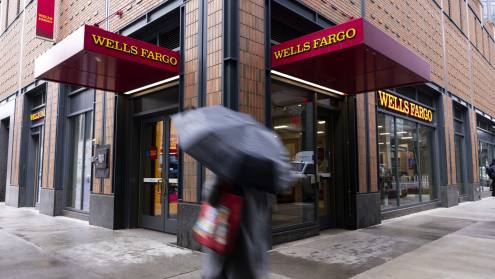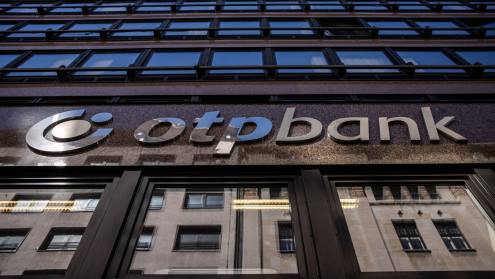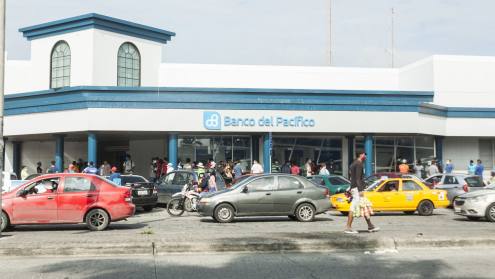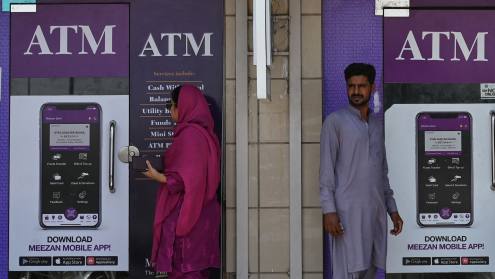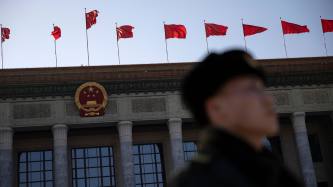When Christine Lagarde became France's minister of economic affairs in 2007, she brought experience of international markets gleaned from her career at international law firm Baker & McKenzie. With good contacts in the Middle East, she apparently arrived at an important conclusion in mid-2008.
"She felt that Islamic finance was an area where Paris could and should do better to attract Middle Eastern investment. London was a long way ahead of Paris, but that gap could be closed, with the idea that Paris is well positioned to receive investments into the eurozone," says Thierry Dissaux, who became Ms Lagarde's advisor on Islamic finance at the French treasury in mid-2009.
Help came from Paris Europlace, an organisation of entities working to promote the French financial markets. Europlace set up a committee on Islamic finance, initially to identify tax and legal obstacles, under the chairmanship of Gilles Saint-Marc, a partner in law firm Gide Loyrette Nouel. "We identified French legal institutions that could permit Islamic finance; legal principles on leasing could be used to structure sukuk al-ijara, and those on participating loans could be used for sukuk al-musharaka," he says.</p> <div class="photo_first" style="width: 150px;">%%IMAGE%%<span>Growth centres: Efforts are being made to establish Islamic financial centres in Paris and Toronto, to cater to the local Muslim population and attract investment from the Middle East</span></div> <p>However, creating a genuine level playing field between Islamic and conventional finance was more complicated. In the UK, common law and the use of trust structures allow banks and lawyers to create special-purpose vehicles to house the underlying assets in sukuk transactions. In France, the civil code leaves uncertainty for the markets unless there is a framework in place that explicitly describes how that transaction should be treated in law. "We wanted to avoid becoming involved in sharia interpretation, so what we needed was new definitions of French legal concepts that encompassed all possible interpretations of sharia compliance, within which the scholars could then design their own instruments," says Mr Dissaux.
Specific problems involved the French tax treatment of the sale and purchase agreements that form murabaha commodity financing deals. The murabaha pays a margin to the institution providing finance, but this would be taxable under French law, whereas interest payments received from conventional lending are not subject to tax. The solution crafted was a series of fiscal instructions applying to each Islamic finance structure, including murabaha, sukuk, ijara and istithna. Instructions for diminishing musharaka (joint purchase) and wakala (funds to manage) transactions should be issued by the end of 2010.
"The final stage is to hold discussions with sharia scholars to validate structures that can be built using a combination of French securitisation law and fiducie law, which is the closest we have to the UK trust structure. We are also looking at certificates tracking the performance of underlying assets, to see if this could satisfy the requirements of mudarabah structures," says Mr Saint-Marc.</p> <div class="photo_article_left" style="width: 150px;">%%IMAGE%%<span>Philippe Henry, then head of global banking for HSBC in Paris</span></div> <p><strong>The way forward</strong>
Symbolising the step from creating the legal framework to using it, Mr Saint-Marc handed over chairmanship of the Europlace Islamic finance committee in March 2010 to Philippe Henry, then head of global banking for HSBC in Paris. To date, there have been a few small sharia-compliant real-estate transactions in France, but no sukuk issued by French entities. Mr Henry is confident this will follow.
"Borrowers are constantly looking for pricing arbitrage between the various markets in which they may borrow. We are now in a position to propose Islamic finance pricing and structures to our clients in France as part of the range," says Mr Henry.
Given the large and reliable investor pool for conventional issuance by the French treasury, market participants are sceptical about the likelihood of a French sovereign sukuk. Instead, Pierre Sorbets, head of public sector at HSBC in Paris, believes infrastructure projects in the Middle East with French sponsors are the most likely pioneers. Leading French utilities such as Total, Electricité de France, Suez and Veolia are all active in Middle Eastern infrastructure projects, which would have a high profile with sharia-compliant investors.
"For such projects, large sums of money are needed, so it makes sense to tap all available markets, and it is possible to identify a subcategory of infrastructure assets that can be isolated to go into the sukuk special-purpose vehicle," says Mr Sorbets.
The missing retail link
What is strikingly missing from the French Islamic finance story, in a country with an estimated 3.5 million Muslims, is an Islamic retail bank. The only fully sharia-compliant bank in France, Taysir, has struggled to get off the ground. Syrian-born investor Fehmy Saddy, who sought permission to create the bank in 2005, explains the obstacles he faced.
"The Banque de France signed a memorandum of understanding with us but it contained a clause that proved impossible to meet - that there had to be a majority French-owned bank in the capital structure. We approached all of them, but they decided that their major clients would not want them to be involved in Islamic banking activity for political reasons," says Mr Saddy. In 2009, the Banque de France agreed to waive its restriction and accept a reputable foreign bank as Mr Saddy's anchor investor. He is in negotiation with several interested parties, and believes the French banks may quickly follow Taysir once his bank opens the market.
"Many Muslims in France, mostly in the small shopkeeper class, are financially solvent, and have been buying property with cash to avoid taking loans from the conventional banking sector. They are even depositing savings with a conventional bank and paying the interest to charity to avoid breaking sharia. An Islamic retail bank can tap into this group to supply Islamic mortgages and commercial cash management," says Mr Saddy.
The experience of Canada suggests that Mr Saddy's optimism is justified. Islamic finance there may not have the ministerial drive present in France, but it is already firmly rooted in the local Muslim community of 1 million. In the 1970s, Pervez Nasim, a former Canadian finance ministry official, confronted the same problem of underbanked Muslims that motivates Mr Saddy today. Mr Nasim became one of 14 founding members of the Islamic Co-operative Housing Group, with start-up capital of C$17,000 ($14,000) in 1980. Today, he runs what has become Ansar Financial Group, which has a portfolio of C$30m, funding 600 properties via diminishing musharaka transactions that often allow borrowers to repay faster than a conventional mortgage. Ansar has diversified, with an additional C$24m in assets, including auto loans, and a retirement savings scheme that has amassed C$12m from about 4000 members. Following an initial public offering that raised $85m, Ansar now has the beginnings of a commercial real-estate arm, starting with a care home project.
"All [Ansar] operations have three elements of compliance - sharia law, the Canadian Co-operatives Act and tax law. As far as I know, we are the first and only public company in Canada whose articles of association explicitly forbid borrowing or lending with interest," says Mr Nasim.
Into the markets
Since 2004, UM Financial has entered the Canadian Islamic real-estate financing market on a much larger scale, with $120m in financing from Credit Union Central of Ontario and a Gulf-based investor. UM Financial's chief executive officer, Omar Kalair, says he is targeting a more mass-market audience than Ansar. He believes as many as 5000 Muslim clients with conventional mortgages would like to make the switch.
At the same time, Mr Kalair is seeking to move into wholesale and investment banking. The major Canadian banking groups have been reluctant to enter Islamic finance after early efforts were unsuccessful - three Toronto-listed Islamic mutual funds have been launched but later shut in the past decade, and an Islamic exchange-traded note issued by RBC Capital Markets in 2004 also failed to win investors. According to a spokesperson at RBC: "Islamic banking, as a whole, is very new to RBC and we want to develop a deeper understanding in this arena prior to launching any products and services, because it is such a different way of banking".
Mr Kalair believes this leaves the field clear for UM Financial to become the link between investors in the Middle East and the affluent Canadian market. He is currently working on early proposals for three public-sector and one financial-sector sukuk. Market participants believe the Ontario provincial government might be willing to launch a debut sukuk, as part of efforts to attract new trading relations with the Gulf.
"There are a lot of Middle Eastern funds that are sitting on US treasuries but want to become sharia-compliant and diversify out of the US dollar, so we see Canada as an attractive alternative investment-grade destination over the next two to five years," says Mr Kalair.
Toronto has a system of common law that minimises obstacles to financial innovation. As a result, the market has moved ahead of the drive to create an Islamic financial centre. The Toronto Financial Services Alliance, equivalent to Paris Europlace, has created an Islamic-finance working group. Withholding tax is one of the stumbling blocks for cross-border deals, because Islamic finance transactions often replace interest payments with rent-like revenue streams. But Steve Watts of KPMG, who is co-chair of the working group, is confident that regulatory amendments or interpretive rulings can overcome this.
At present, Islamic finance may not be at the top of the agenda for the Canadian government. But Mr Watts points to Middle Eastern investments in Vancouver Port and the Canadian hotel sector as evidence that investment will flow once tax ambiguities are clarified.
"Based on interaction with trade delegations from the Gulf, I have no doubt that, if we can create an attractive environment for financial structures familiar to these investors, this could be a catalyst for a great deal of additional activity in Canada," says the Toronto Islamic finance working group's other co-chair, Jeff Graham of law firm Borden Ladner Gervais.</p>



